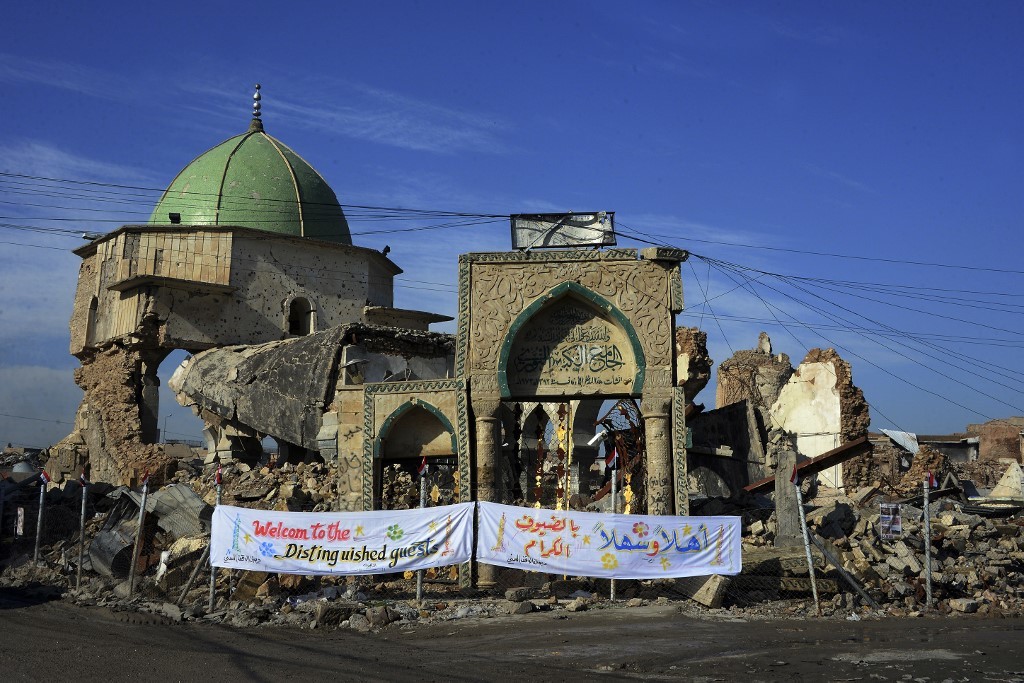'A cemetery for the living': Mosul, 5 years after Islamic State conquest
Published time: 11 Jun, 2019 18:03Edited time: 12 Jun, 2019 08:55
Mosul had fallen to Islamic State five years ago. The US-led coalition liberated the Iraqi city in 2017, but left it largely in ruins. With the ISIS caliphate gone, are the local residents recovering, and how?
IS takes Mosul
After taking control of Fallujah and Ramadi in early June 2014, IS (also known as ISIS) fighters turned their sights on Mosul, where the Iraqi Army reportedly had just 10,000 soldiers. Crucially, the troops were short of weapons and ammunition, and their tanks had been moved to the Anbar province.
On June 4, IS rode into the city in pick-up trucks and overpowered their Iraqi opponents in mere days, seizing control of government buildings and the airport as some 500,000 civilians fled. Kurdistan had offered to send Peshmerga fighters to help, but Iraq declined, and Mosul fell.
The terrorist group gained complete control of the city of 1.8 million people by June 12, and killed the imam of the famous Grand Mosque of al-Nuri for refusing to join them. Weeks later, IS leader Abu Bakr Al-Baghdadi made a rare appearance at the mosque to declare a "caliphate". The group later destroyed the famous historical building, in a huge blow to local culture.

Living in the shadow of IS
Normal life in Mosul was upended by the terrorist occupation. IS imposed extreme sharia law on the city’s residents, enforced by Hesba morality police, with flogging, stoning, and cutting off hands doled out as punishment. Citizens witnessed beheadings and militants throwing gay people to their deaths from the Chadirji Building.
ALSO ON RT.COM‘Our houses collapsed on us’: Refugees suffer breakdowns recalling Mosul nightmare (EXCLUSIVE)
Many residents lived in constant fear, as any encounter with the occupiers, however simple, could prove fatal.
“We avoided any contact with ISIS, and stayed in the house when they were near,” a refugee from Mosul told RT. “They do whatever they want – and could kill you just for saying hello.”
Books and mosques were destroyed, while school attendance plummeted and all education curricula was rewritten to teach IS ideology. The terrorist group also laid claim to whatever they wanted, according to residents.
“Our house is taken by ISIS. Everything taken by ISIS. Even our neighbors are now supporting ISIS,” church deacon Sarmad Ozan told RT after he fled the city.
Devastating coalition airstrikes
The offensive to retake Mosul was started in October 2016 by the Iraqi military, with the support of a US-led coalition. It hit the city hard. Special Operations Forces entered Mosul from the east in November. Fierce fighting ensued, with the coalition – including the air forces of the UK, Canada, Australia, Germany, and Jordan – relentlessly bombing the city.
It would take nine months of fighting and bombing for Iraq to announce the liberation of Mosul in July 2017, but the operation came at a huge cost to the residents, who were left to pick up the pieces.
The coalition basically destroyed Mosul in order to save it: 90 percent of the city was leveled by the airstrikes and the fighting, with some 8 million tons of rubble in its wake. The death toll has been astounding: one survey carried out on the ground in Mosul found that more people were killed by US-backed coalition forces over the nine-month battle than during the entire three-year IS occupation.
Counting the cost, 5 years on
Today, Mosul remains a ravaged ruin, riddled with scars from the occupation and the nine-month battle to reclaim the area from IS. Piles of rubble lie where buildings once stood, and sewage runs down some of the devastated streets.
Those who braved the return to Mosul told RT of the “pathetic” standard of living in the city long after the coalition claimed victory over IS, suffering power and water shortages and struggling to get around the rubble-strewn streets 18 months later.
“We’re here battling all the hardships; we now regret that we ever came back,”one man said of the daily conditions.
"We are like the living dead," another resident said when RT visited Mosul in February. "We have a cemetery over there, but here it’s a cemetery for the living.”
Think your friends would be interested? Share this story!






0 Comments:
Post a Comment
Subscribe to Post Comments [Atom]
<< Home